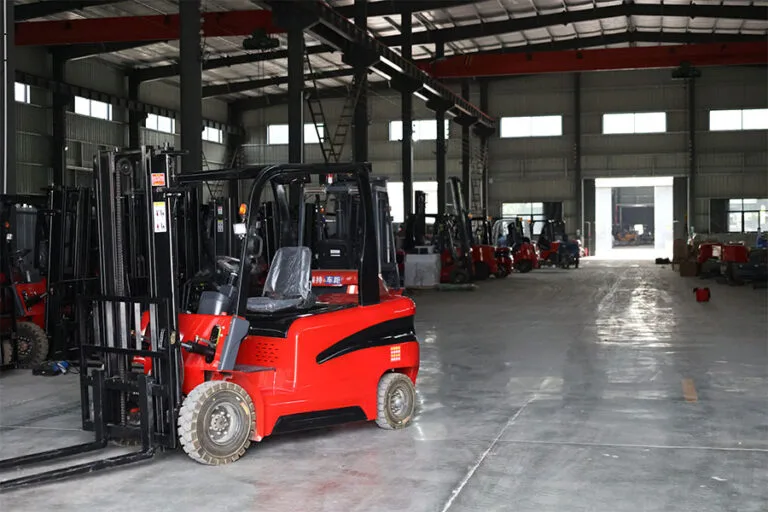I’m thrilled to have you here! Before we dive into the content, let’s stay connected. Join me on my social media platforms for more insights, community engagement, and regular updates. Here’s where you can find me:
📌 Facebook: Shandong Huaying International Trade Co., Ltd.
Now, let’s embark on this journey together. I hope you find the content here not only insightful and engaging but also valuable to your interests. Let’s learn, grow, and connect!
Table of Contents
Introduction
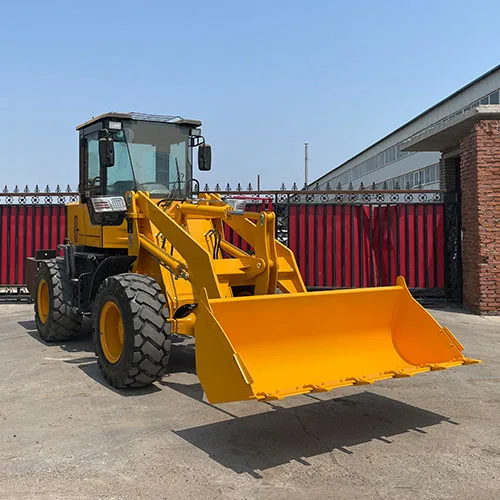
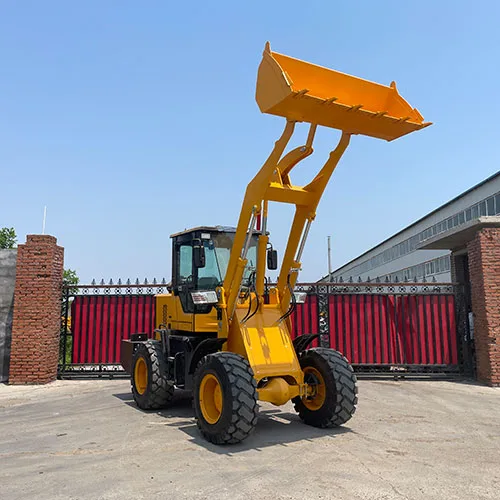
Investing in a wheel loader is a significant decision that can impact your operations for years to come. Selecting the appropriate machine ensures efficiency, safety, and cost-effectiveness. However, overlooking critical factors can lead to operational challenges and financial setbacks. This guide highlights six warning signs that may indicate you’re on the path to purchasing the wrong wheel loader.
NO 1. Mismatched Size and Capacity
One of the most common issues users face when they buy wheel loader equipment is choosing a machine that doesn’t match the actual job site requirements. A loader that is too small might struggle to handle the daily workload, which results in longer working hours, increased fuel consumption, and possible equipment strain. On the other hand, a machine that’s too large can be challenging to maneuver, particularly in confined areas, and may consume more fuel than necessary.
Before you buy wheel loader machinery, it’s crucial to evaluate the typical tasks, load volume, and working conditions. Consider the weight and density of the materials being handled, whether it’s soil, gravel, or scrap metal. Also, think about the average bucket load and how frequently the equipment will be in use. By analyzing these factors, you can select a unit that is appropriately sized for both efficiency and cost-effectiveness.
NO 2. Inadequate Attachment Compatibility
Another significant red flag when companies or individuals buy wheel loader models is failing to check whether the machine supports the necessary attachments. One of the biggest advantages of a wheel loader is its adaptability. These machines are often deployed in diverse sectors such as construction, landscaping, mining, and agriculture precisely because of their ability to work with a wide range of attachments like buckets, pallet forks, grapples, augers, and snow plows.
However, not every model is designed with universal attachment compatibility. Some lack quick-attach systems or have limitations in hydraulic capacity, reducing their functionality. If you buy wheel loader equipment without evaluating attachment support, you may find that it cannot perform the tasks you require without costly modifications or upgrades.
Before you buy wheel loader machinery, review the compatibility with the attachments you currently use and anticipate needing in the future. Models that accommodate a broader range of tools increase productivity and reduce long-term costs. A versatile loader means you can handle different tasks with the same machine, maximizing return on investment and operational flexibility.
Skipping this evaluation can lead to disappointment, downtime, and a machine that does not align with your business goals. Always verify attachment support before making a purchase decision.
NO 3. Overlooking Operator Comfort and Ergonomics
When people buy wheel loader equipment, the decision often hinges on power, load capacity, and speed. While these specifications are critical, ignoring the operator’s experience can significantly affect efficiency and safety on the job site. A machine may be technically capable, but if it’s uncomfortable to operate, productivity will decline and fatigue-related risks will increase.
Long working hours in a poorly designed cabin can lead to decreased performance. Discomfort may result from inadequate seating, noise levels, poor visibility, or the absence of climate control. When you buy wheel loader units, consider features such as an ergonomic seat with multiple adjustments, low-vibration operation, wide-angle visibility, and user-friendly control layouts.
Some modern loaders offer advanced cabins with touchscreen displays, air suspension, and automatic climate systems to ensure the operator remains alert and comfortable. When you buy wheel loader machinery that takes human factors into account, you reduce the likelihood of operator fatigue, increase shift efficiency, and enhance workplace safety.
In industries where productivity and safety are closely linked, the operator’s comfort should never be an afterthought. It’s a key component of a smart buying decision.
NO 4. Neglecting Maintenance and Serviceability
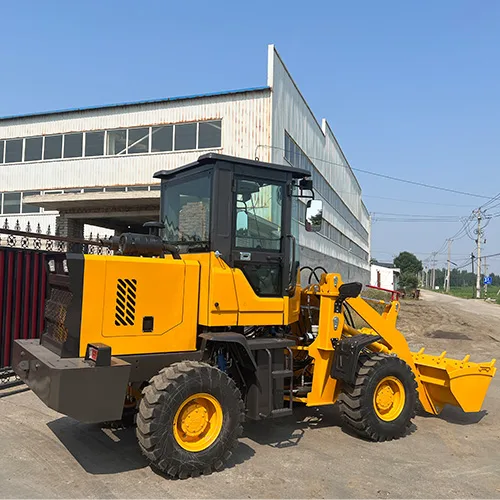
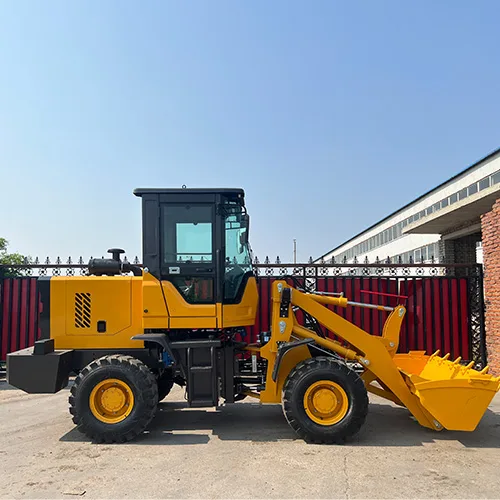
Maintenance is an unavoidable aspect of machine ownership. However, not all wheel loaders are created equal when it comes to serviceability. One common mistake when people buy wheel loader equipment is underestimating how much time and effort will be spent on upkeep. A model with limited access to critical components can lead to costly downtime and operational delays.
Before making a decision to buy wheel loader machinery, inspect how easily technicians can access the engine, filters, battery, and hydraulic systems. Ground-level service access, well-organized engine compartments, and easily readable gauges are signs of a machine built with service in mind.
Also, evaluate the availability of replacement parts and whether the dealer offers timely technical support. If parts need to be ordered from overseas or if no local service provider exists, even simple repairs could mean days of inactivity. A well-supported model ensures that your investment continues working without interruptions.
When you buy wheel loader units that are easy to maintain, you reduce the total cost of ownership, improve equipment longevity, and maintain consistent productivity. Overlooking this aspect may lead to future regrets that could have been avoided with a more careful evaluation.
NO 5. Ignoring Total Cost of Ownership
When businesses or individuals decide to buy wheel loader machines, they often focus too much on the initial purchase price and overlook the long-term financial impact. While a low upfront cost may seem attractive when you buy wheel loader equipment, it can be deceptive if the machine incurs high operational expenses down the line. The total cost of ownership (TCO) includes not just the sale price but also fuel consumption, routine maintenance, repair frequency, parts replacement, insurance, downtime, and eventual resale value.
For instance, a cheaper loader might consume more fuel per hour or require more frequent servicing, which adds up over time. When you buy wheel loader models, considering just the sticker price is not enough. In contrast, a slightly more expensive unit with better fuel efficiency and durable components might save significant money over the machine’s lifetime.
Before you buy wheel loader machinery, request detailed TCO estimates from the dealer and compare the operating costs over a 3–5-year span. Make sure to ask about expected maintenance intervals, average fuel usage, and how the model holds its resale value in the market. Evaluating the full economic picture before you buy wheel loader equipment helps avoid hidden costs that erode your investment returns.
NO 6. Disregarding Dealer Support and Warranty

Another major oversight many buyers make when they buy wheel loader units is underestimating the importance of dealer support and warranty coverage. Even the most advanced and reliable equipment will eventually require service or part replacement. Without dependable after-sales support, simple issues can become prolonged disruptions.
If you buy wheel loader machinery from a dealer with poor customer service or limited parts availability, you may face long downtimes and frustration when problems occur. When you buy wheel loader equipment, it’s essential to choose a strong dealer network that ensures you have access to certified technicians, genuine parts, quick troubleshooting, and regular maintenance options.
Additionally, a comprehensive warranty offers peace of mind by covering major components for a specified period or number of operational hours. Make sure to ask what is included in the warranty when you buy wheel loader machines and clarify whether it covers travel time for technicians, on-site repairs, or software updates.
Choosing to buy wheel loader units from a reputable dealer with a proven track record in after-sales service not only protects your investment but also ensures your operations remain smooth and efficient in the long run.
Comparison Table: Key Considerations When Buying a Wheel Loader
| Consideration | Importance | Potential Issues if Overlooked |
|---|---|---|
| Size and Capacity | Ensures machine meets operational demands | Inefficiency, increased fuel consumption |
| Attachment Compatibility | Expands machine versatility | Limited functionality, additional costs for modifications |
| Operator Comfort | Enhances productivity and reduces fatigue | Operator errors, decreased morale |
| Maintenance and Serviceability | Minimizes downtime and extends machine lifespan | Prolonged outages, increased repair costs |
| Total Cost of Ownership | Provides a comprehensive view of long-term expenses | Unexpected costs, reduced profitability |
| Dealer Support and Warranty | Ensures ongoing support and issue resolution | Difficulty obtaining parts, lack of technical assistance |
Conclusion
Selecting the right wheel loader involves more than just evaluating the purchase price. By considering factors like size, attachment compatibility, operator comfort, maintenance, total cost of ownership, and dealer support, you can make a well-informed decision that benefits your operations in the long run. Avoiding these common pitfalls ensures that your investment yields the desired productivity and efficiency.
FAQ
Q1: How do I determine the right size of wheel loader for my needs?
Assess your typical load sizes, material densities, and workspace constraints. Consulting with equipment specialists can also provide valuable insights.
Q2: Why is attachment compatibility important?
Attachments enhance the versatility of a wheel loader. Ensuring compatibility allows you to perform a broader range of tasks without needing additional machinery.
Q3: What should I look for in terms of operator comfort?
Features like adjustable seating, climate control, low noise levels, and intuitive controls contribute to operator comfort and efficiency.
Q4: How can I evaluate the total cost of ownership?
Consider factors like fuel efficiency, maintenance schedules, parts availability, and resale value. Requesting a TCO analysis from the dealer can also be helpful.
Q5: What role does dealer support play in my purchase decision?
Strong dealer support ensures timely maintenance, access to parts, and technical assistance, all of which are crucial for minimizing downtime and extending the machine’s lifespan.


